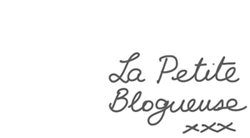It's taken me so long to 'let go' and say things the French way rather than the way I know is the 'right' way in my head, for example, an English equivalent would be saying 'gonna' instead of 'going to'.
I knew that native speakers contract and say t'as (you've/have you) instead of tu as and t'es (you are/are you) instead of tu es but it was a very gradual process for me to speak like that because I had a blockage at the back of my head telling me it was 'wrong' to say it the shorter, quicker way.
Then there's du coup which means therefore. I've always learnt donc so I use donc all the time. I've been trying to force myself to use du coup when speaking but it still doesn't come naturally.
..quoi ? (what?) at the end of a sentence. It's just a filler word I guess, or added for emphasis.
n'importe quoi (whatever) as a statement is also commonly used. It means whatever or anything but can also mean things like that's crap/nonsense/bullshit or yeah right...
ah bon ? (really?) - I translated this literally as vraiment ? till I realised noone really used this. So then I started saying c'est vrai ? and realised it's not that common either. ah bon ? (and others) are more commonly used.
ça se voit. literally "that sees itself". I hear this often and based on the context I would translate it as that's obvious, that's evident, or even duh! Other translations are: you can tell, you can see it, it's as plain as day, you can't miss it, it shows... I know what it means but I still haven't gotten to the point where I can confidently use it in a sentence.
This week I came across the phrase trop juste. I thought it meant something like just in time based on the context it was used but it actually meant it was too late.
Then of course there's slang/colloquialisms and it actually feels like I have to learn a whole new language!
c'est dingue instead of c'est fou to mean it/that's crazy! I hear the former far more than the latter (which was the one I learnt of course).
je me disais (I told myself/I said to myself) I noticed this a lot. It's not something I say very much in English but when telling a story of something that happened in the past, people use this often.
There are lots more... when I'm having an indepth 1:1 conversation with someone or watching a movie with French subtitles I notice them all but then soon after I don't retain it all until the next time I'm having a conversation again.





















2 comments:
You are very right about the use of French words, but be careful, some could be used only in the speaking language, not every situation (writing or business language for example !)
Hi - oh I've been there as well. Just be careful and use the right phrase in the right context (not like me when I used some colloquialisms with a Préfet...).
And look up some of the French equivalent of Spoonerisms. My favourite is
"Je vous laisse le choix dans la date". Not only do you have to invert two sounds in this phrase, but you have to understand some very "iffy" slang. But so much fun to drop into a conversation when you play the 'innocent' foreigner who could never be able to do that!
Enregistrer un commentaire